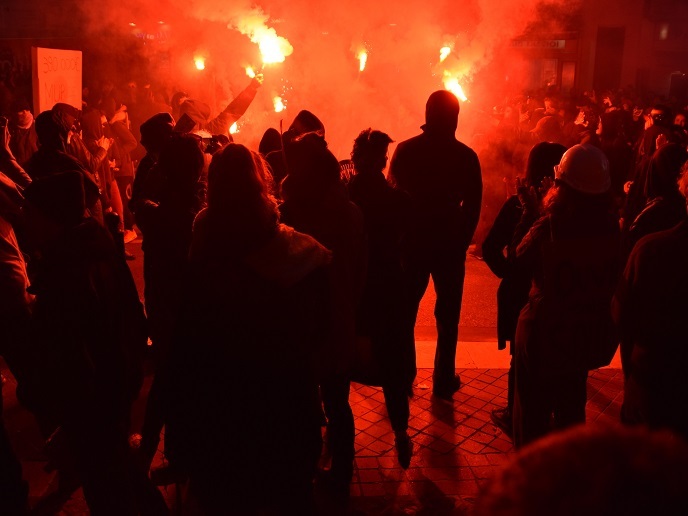Investigating the role of disinformation in the rise of eco-fascism
An emerging trend often overlooked at the policy level is the exploitation of the climate crisis by far right extremists. Understanding this threat is an urgent priority, as white supremacist ideology poses a threat to EU security and social cohesion, and to fundamental European values, such as tolerance, non-discrimination and equality. Co-hosted by Norwich University(opens in new window) in the United States and the Central European University(opens in new window) (CEU) in Austria, RADICALISATION(opens in new window) investigated the construction and evolution of online disinformation campaigns to understand their role in extreme right radicalisation strategies. The project’s preliminary findings point to emerging trends such as the weaponisation of climate change(opens in new window) and its exploitation by far right populist political parties and white supremacist groups – so-called eco-fascism(opens in new window). The project also examined disinformation in the context of Russia’s invasion of Ukraine and its links to far and extreme right radicalisation. “As the project evolved, it zoomed in specifically on the link between climate change, violent extremism and the language of eco-fascist propaganda in the global North,” says Eszter Szenes(opens in new window), former Marie Skłodowska-Curie Actions(opens in new window) (MSCA) research fellow, who is now a lecturer in the School of Education at the University of Adelaide(opens in new window).
Understanding online disinformation campaigns
The RADICALISATION project, undertaken with the support of the MSCA programme, drew on a range of theoretical and analytical frameworks, including systemic functional linguistics(opens in new window), corpus linguistics(opens in new window), forensic linguistics(opens in new window), legitimation code theory(opens in new window) and open-source intelligence(opens in new window) (OSINT). This work included finding key narratives in online propaganda and disinformation campaigns, visualising eco-fascist propaganda and disinformation tactics, identifying axiological constellations(opens in new window) to reveal extremist ideologies, and analysing the linguistic anatomy of Russian information warfare.
Disinformation tactics
The project revealed that disinformation tactics within eco-fascist rhetoric are made up of branding non-white populations as ‘invading foreigners’ and ‘parasites’ and local minorities as ‘foreign species’. “As a result of such linguistic violence, the invasion of non-native species that threaten the environment becomes synonymous with the invasion of immigrants, the protection of the environment with the protection of borders, trash with people, and environmental cleansing with ethnic cleansing,” explains Szenes in a forthcoming policy brief for the International Centre for Counter-Terrorism(opens in new window) (ICCT) in The Hague. Disinformation tactics in Ukraine were compared to those used in Syria, which laid the groundwork for military intervention. In Syria, Russian presence was justified by claiming to fight ‘international terrorism’, and in Ukraine, to fight ‘Nazis’ and ‘extremists’. “These findings are especially relevant to the security of the European Union, to predict the possibility of future conflicts,” adds Szenes. Recurring linguistic patterns also construct disinformation tactics that condemn the United States, the EU and NATO as ‘terrorist recruiters’, ‘civilian killers’, ‘failed states’ and the ‘declining West’ collectively, while praising Russia as a ‘terrorist slayer’, a ‘humanitarian’ and a ‘global superpower’.
Supporting European democracy in the face of a rising threat
Following the project results, Szenes recommended to the EU that government and law enforcement agencies should move from a reactive to a proactive educational perspective, including critical digital and media literacy, fact-checking, and online safety education in schools. Szenes is writing the results of the project into an upcoming book ‘The language of ecofascist propaganda: Greenwashing white supremacy’, to be published by Bloomsbury.







